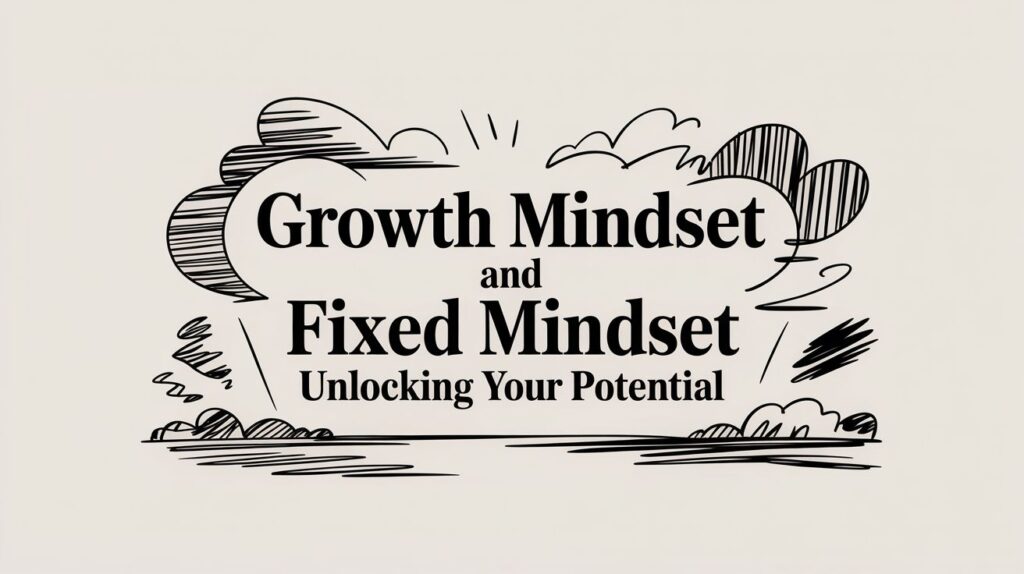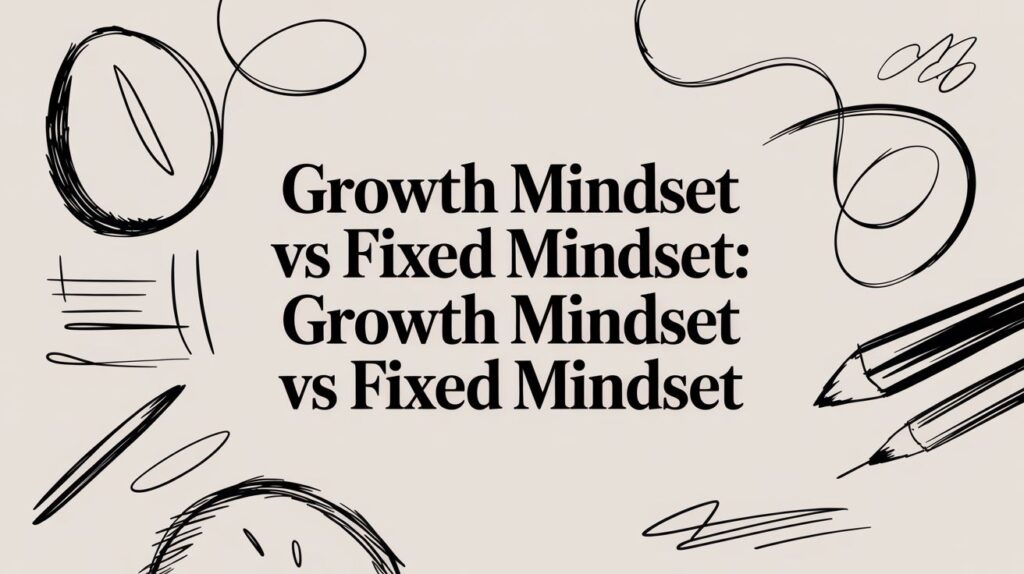Amor Fati: Loving Your Life, Even the Messy Bits

Life can feel like a wild ride, right? One minute things are smooth sailing, the next you’re dealing with unexpected bumps and detours. It’s easy to get caught up in wishing things were different, or getting frustrated when stuff doesn’t go as planned. But what if we tried a different approach? What if we learned to embrace it all, the good, the bad, and the downright messy? That’s where the idea of Amor Fati comes in – it’s all about learning to love your fate, no matter what.
Key Takeaways
- Amor Fati, a concept from Stoic philosophy, means loving your fate. It’s about accepting and even embracing everything that happens in life, not just the good parts.
- The Stoics taught us to focus on what we can control – our thoughts and actions – and let go of what we can’t, like external events.
- Accepting life’s challenges doesn’t mean giving up; it means finding strength and growth by working with what fate gives you.
- By seeing life as a connected series of events, like a cosmic dance or domino effect, we can better understand our place and appreciate the journey.
- Living authentically with Amor Fati means owning your whole story, imperfections included, and recognizing that the messy bits are often what help us grow the most.
Embracing the Stoic Philosophy of Amor Fati

So, what’s this whole ‘Amor Fati’ thing? Basically, it’s a fancy Latin phrase that means ‘love of fate.’ It’s a core idea from the Stoics, ancient thinkers who really knew how to handle life’s ups and downs. They weren’t just about putting up with bad stuff; they actively tried to love whatever happened, good or bad. Think of it like this: instead of getting mad when life throws you a curveball, you try to embrace it, learn from it, and maybe even find something positive in it. It’s about seeing the whole picture, the messy bits included, as necessary parts of your journey.
Understanding Amor Fati: Love of Fate
At its heart, Amor Fati is the practice of accepting and even cherishing everything that happens in your life. This isn’t about being a doormat or passively letting things happen. It’s a proactive stance. It means looking at your life, with all its triumphs and its stumbles, and saying, "Yes, this is mine. I accept it, and I will make the best of it." It’s about recognizing that the challenges you face are not random misfortunes, but rather opportunities for growth and self-discovery. It’s a way to find peace by aligning yourself with the natural flow of events, rather than fighting against them. This perspective can be incredibly freeing, allowing you to release the burden of wishing things were different.
The Stoic Approach to Life’s Challenges
Stoicism offers a powerful framework for dealing with life’s inevitable difficulties. The Stoics believed that while we can’t control external events, we have complete control over our reactions to them. This is where the real strength lies. Instead of getting caught up in frustration or despair when things go wrong, they encouraged focusing on what is within our power: our judgments, our desires, and our actions. They saw challenges not as roadblocks, but as training grounds for virtue and resilience. By practicing this mindset, you can transform adversity into a source of inner strength and wisdom. It’s about becoming the captain of your own ship, even when the seas get rough. You can find some interesting perspectives on this by looking at ancient philosophy.
Transforming Resistance into Gratitude
One of the most profound shifts that comes with embracing Amor Fati is the transformation of resistance into gratitude. When you stop fighting against what is, you open yourself up to appreciating what you have. This doesn’t mean ignoring problems or pretending they don’t exist. Instead, it’s about acknowledging reality and finding reasons to be thankful, even in difficult circumstances. Perhaps a setback taught you a valuable lesson, or a difficult relationship helped you understand yourself better. By consciously looking for these silver linings, you can cultivate a deeper sense of contentment and peace. It’s a practice that requires effort, but the rewards—a more positive outlook and a greater appreciation for life—are immense. It’s about shifting your internal state from one of struggle to one of appreciation for the present moment, whatever it may hold.
Finding Strength in Acceptance
Sometimes, life feels like a giant puzzle with missing pieces and pieces that just don’t fit. It’s easy to get frustrated, to wish things were different, to fight against the way things are. But the Stoics, those ancient thinkers, had a different idea. They talked about amor fati, which basically means loving your fate, whatever it throws at you. It’s not about pretending bad stuff is good, but about accepting it as part of the whole picture.
The Power of Non-Attachment
Think about it: we get really attached to how we think things should be. When reality doesn’t match our expectations, we feel upset. Non-attachment means letting go of that tight grip on outcomes. It’s like holding a beach ball underwater; the harder you push, the more it fights back. If you just let go, it floats naturally. This applies to jobs, relationships, even how your day goes. You can’t control if your boss likes your idea, but you can control how you present it and how you react if it’s not accepted. It’s about finding peace by not needing things to be a certain way.
Focusing on What You Can Control
This is a big one. The Stoics were really clear on this: some things are up to us, and some things aren’t. Your thoughts, your actions, your judgments – those are yours. The weather, other people’s opinions, traffic jams – those aren’t. When you spend energy worrying about or trying to change things outside your control, you’re basically wasting your time and getting stressed for nothing. It’s much more effective to put that energy into what you can influence. Did you miss your train? You can’t change that. But you can choose to use the extra time to read a book, listen to a podcast, or just take a few deep breaths. It’s about shifting your focus from the uncontrollable to the controllable.
Self-Mastery Through Conscious Choices
This is where it gets really interesting. Self-mastery isn’t about being perfect or never making mistakes. It’s about being aware of your reactions and making deliberate choices, even when things are tough. It’s like being the captain of your own ship. You can’t control the waves, but you can steer the ship. Every small choice – like choosing to respond calmly instead of snapping when someone annoys you, or deciding to go for a walk when you feel stressed – builds up your ability to handle whatever life throws your way. It’s a practice, not a destination. You learn more about yourself by how you handle the messy bits, not just the smooth sailing.
Accepting what happens doesn’t mean you have to like it. It means you stop fighting reality and start working with it. This frees up so much mental energy that you can then use to actually improve your situation or simply find peace within it.
The Intricate Tapestry of Fate
Life can feel like a really complicated puzzle sometimes, right? You’ve got all these pieces – the good stuff, the bad stuff, the totally confusing bits – and they all seem to fit together in this grand, intricate tapestry. It’s like watching a cosmic dance where every step, every movement, is connected to what came before and what’s coming next. Think of it like a massive chain reaction, a cascade of dominoes falling, each one setting off the next. This sequence of events shapes our existence, and whether we see it as destiny unfolding or just a wild, unpredictable ride is a pretty big question. It’s not about a master plan, but more about how everything is interconnected.
This idea of fate, of things happening as they do, is something the Stoics really leaned into. Instead of fighting against the flow, they suggested embracing it. Epictetus put it simply: "Seek not for things to happen as you wish, but wish for things to happen as they do, and you will go on well." It’s about accepting what is, rather than wishing it were different. This acceptance isn’t passive resignation; it’s an active choice to find peace and meaning in the present moment, whatever it holds. It’s about recognizing that the universe has its own rhythm, and our part is to find our place within it.
Viewing Life as a Cosmic Dance
Imagine life as this enormous, beautiful dance. Every person, every event, every single moment is a partner, a step, a turn. You can’t control the music or the other dancers, but you can choose how you move, how you respond to the rhythm. It’s a constant interplay, a flow that’s both predictable in its patterns and surprising in its variations. This dance is happening whether we’re paying attention or not, and our role is to join in, to find our own grace within the grand choreography. It’s about seeing the beauty in the movement, even when the steps are difficult.
The Domino Effect of Existence
Everything that happens is like a domino falling. One event triggers another, and then another, creating a long, unbroken chain that stretches from the past into the future. Your choices, the choices of others, even seemingly random occurrences – they all push the next domino. Understanding this interconnectedness helps us see that even small actions can have far-reaching consequences. It’s a reminder that we’re all part of a larger system, and our lives are woven into the fabric of everyone else’s. This perspective can be quite humbling, and it encourages us to be more mindful of our impact. It’s a powerful way to think about how we got here and where we might be going, much like how the Ukraine War & the Eurasian World Order signifies a shift in global dynamics.
Navigating the Roller Coaster of Life
Life often feels like a wild roller coaster, doesn’t it? There are exhilarating highs, stomach-dropping lows, and unexpected twists and turns that can leave you breathless. Trying to control every dip and climb is exhausting and, frankly, impossible. Amor Fati encourages us to hold on tight, enjoy the ride, and even appreciate the thrill of the unknown. It’s about accepting that the ups and downs are part of the experience, and each part contributes to the overall journey. Instead of fearing the next drop, we can learn to brace ourselves and find the excitement in the descent, knowing that it’s all part of the adventure.
Living Authentically with Amor Fati
Owning Every Part of Your Story
Living authentically means you don’t shy away from the less-than-perfect parts of your life. Think about it – life isn’t some polished movie reel; it’s more like a messy, beautiful scrapbook. Embracing your whole story, the triumphs and the stumbles, is key to genuine self-acceptance. When you stop trying to hide the ‘bad’ bits, you actually free yourself up to be more present and real. It’s about looking at your past, even the parts that make you cringe a little, and saying, ‘Yep, that happened, and it made me who I am today.’ This kind of honest self-reflection is a big part of loving your fate.
Leaning into Imperfections
We all have those quirks, those habits, those moments where we just don’t measure up to some imaginary ideal. Instead of beating yourself up over them, try seeing them as part of your unique makeup. Maybe you’re always a little late, or you have a terrible singing voice, or you can’t seem to keep your desk tidy. These aren’t flaws to be eradicated; they’re just… you. Accepting these imperfections doesn’t mean you stop trying to improve, but it does mean you stop letting them define your worth. It’s like Marcus Aurelius said, a fire turns whatever is thrown into it into flame and brightness. Your imperfections can be that fuel.
Seeing Messiness as Essential for Growth
Life gets messy. It’s just a fact. You might have career setbacks, relationship drama, or just days where nothing seems to go right. The temptation is to resist this mess, to wish it away. But what if you viewed it differently? What if you saw the mess not as a sign of failure, but as a necessary ingredient for growth? Think about it: you don’t learn much from smooth sailing. It’s the choppy waters, the unexpected storms, that really teach you how to steer. So, the next time things get a bit chaotic, try to lean in. Ask yourself what this mess can teach you. It might be resilience, patience, or a new way of looking at things. It’s in these moments of disorder that we often find our greatest strength and learn the most about ourselves.
Practical Application of Amor Fati

So, how do we actually do this Amor Fati thing in our day-to-day lives? It’s not just some abstract idea for philosophers; it’s a practical way to live. Think about it: life’s always going to throw stuff at you, some good, some not so much. The trick is to stop fighting it and start seeing how it all fits together.
Turning Setbacks into Fuel for Growth
When something goes wrong, it’s easy to get stuck in the “why me?” loop. But Amor Fati asks us to flip that. Instead of dwelling on the setback, ask yourself: what can I learn from this? Maybe that project that failed is teaching you about project management, or perhaps a relationship ending is showing you what you truly need in a partner. It’s about finding the lesson, the opportunity, even in the mess. This mindset shift is key to turning obstacles into stepping stones. For instance, if you missed out on a promotion, instead of feeling defeated, see it as a chance to build new skills or explore a different career path. It’s like that story of someone who spilled coffee all over themselves and later met their future spouse because of the delay – a messy start, a beautiful outcome.
Making the Most of Every Moment
This part is about being present. We often get caught up wishing we were somewhere else, or that things were different. Amor Fati encourages us to embrace now. Whatever you’re doing, give it your full attention. If you’re stuck in traffic, don’t fume; maybe use that time to listen to a podcast or just observe the world around you. It’s about finding value in the mundane, recognizing that even the quiet moments are part of the larger tapestry of your life. It’s about accepting that life is a roller coaster, and you’re on it for the ride, enjoying the ups and downs.
Shifting Your Perspective on Past Events
Looking back, we all have things we wish we’d done differently. Amor Fati doesn’t mean pretending those moments were perfect. It means accepting them as they happened and understanding how they shaped you. That awkward conversation, that embarrassing mistake – they’re all part of your story. Instead of regretting them, try to see them as necessary steps that led you to where you are today. You can even use tools like online comment sections to reflect on past discussions and see how your own perspective has evolved, much like leaving a digital footprint of your personal growth [c4f1]. It’s about owning your narrative, the good, the bad, and the messy, and realizing that without those experiences, you wouldn’t be you.
The Courage to Become Your True Self
Becoming your true self isn’t about some grand, sudden transformation. It’s more like a slow unfolding, a quiet courage to peel back the layers of what you think you should be and get to what you actually are. This journey requires a willingness to face yourself, the good and the not-so-good. It’s about owning your story, the whole messy, beautiful narrative, and realizing that every bit of it has shaped you into who you are right now.
Listening to Your Higher Self
Sometimes, we have this inner voice, a gut feeling, or a quiet knowing that points us in a certain direction. It’s easy to ignore it, especially when it’s asking us to do something difficult or go against the grain. But that voice, that higher self, often knows what’s truly best for us. It’s not always loud or demanding; often, it’s a gentle nudge. Learning to tune into it, to really hear it above the noise of daily life and external expectations, is a big part of this process. It’s about trusting that inner compass, even when the path it suggests seems unclear or challenging. This is where you start to find your own unique direction, separate from what others might want for you.
Consciously Articulating Your Values
Once you start listening to that inner voice, you’ll begin to see what truly matters to you. These are your core values. They’re not just abstract ideas; they’re the principles that guide your decisions and actions. It’s important to not just have values, but to actively think about them and put them into words. What do you stand for? What principles are non-negotiable for you? When you can clearly articulate your values, you have a solid foundation for making choices that align with who you are. This clarity helps you stay true to yourself, even when faced with pressure to compromise. It’s about making sure your actions reflect what you believe in, creating a life that feels authentic and meaningful. This is a key part of embracing Nietzsche’s ideas about self-creation.
Building a Life Philosophy
Your life philosophy is essentially your personal operating system. It’s how you make sense of the world, your place in it, and how you choose to live. It’s built from your experiences, your values, and your understanding of life. Developing this philosophy isn’t a one-time event; it’s an ongoing process of reflection and refinement. It’s about consciously deciding what beliefs will guide you and what principles you’ll live by. This philosophy acts as your internal compass, helping you navigate the complexities of life with intention and purpose. It’s the framework that allows you to embrace your fate, the good and the bad, and still move forward with a sense of direction and meaning. It’s about creating a life that is truly your own, built on a foundation of self-awareness and intentional living.
- Identify your core beliefs: What do you hold to be true about yourself and the world?
- Reflect on your experiences: What lessons have you learned from both successes and failures?
- Define your purpose: What impact do you want to have, or what meaning do you seek in life?
- Commit to your principles: How will you live out your values daily?
So, What’s the Takeaway?
Look, life’s going to keep throwing curveballs, that’s just how it works. Trying to control everything is a losing game, and honestly, it’s exhausting. Embracing this idea of amor fati, or loving your fate, isn’t about pretending everything is perfect. It’s about accepting the whole package – the good, the bad, and the downright messy – and finding a way to grow from it. It’s about shifting your focus from what you can’t change to how you react to it. So, next time something goes sideways, try to see it not as a disaster, but maybe as a detour that could lead somewhere interesting. It’s a practice, for sure, and not always easy, but learning to love your life, exactly as it is right now, might just be the most powerful thing you can do.
Frequently Asked Questions
What exactly is Amor Fati?
Amor Fati is a fancy Latin phrase that means “love of fate.” It’s about accepting and even loving everything that happens in your life, the good stuff and the not-so-good stuff. Think of it like embracing all the twists and turns as part of your unique journey.
How did the ancient Stoics think about fate?
The Stoics, like ancient Roman thinkers, believed that we can’t control everything that happens to us. Instead of getting upset about things we can’t change, they taught that we should focus on our own reactions and choices. This helps us find strength and peace, even when things are tough.
How can I use Amor Fati to handle problems?
It’s about seeing challenges not as bad luck, but as chances to learn and grow stronger. For example, if you mess up a project, instead of beating yourself up, you can figure out what went wrong and use that knowledge for next time. It’s like turning a setback into a stepping stone.
What does it mean to not be attached to things?
This means not getting too attached to things staying a certain way. Life is always changing, and trying to hold onto things too tightly can cause a lot of stress. By being okay with change, you can go with the flow more easily and feel less worried.
What’s the difference between what I can control and what I can’t?
It means focusing your energy on what you *can* do, like your attitude, your effort, and your decisions. You can’t control traffic, but you can control how you react to being stuck in it. This focus helps you feel more in charge of your own life.
How does accepting everything make me a better person?
It’s about looking at your whole life story, including the awkward or difficult parts, and realizing they all made you who you are today. Instead of wishing things were different, you accept and appreciate your entire experience, messy bits and all.








Responses